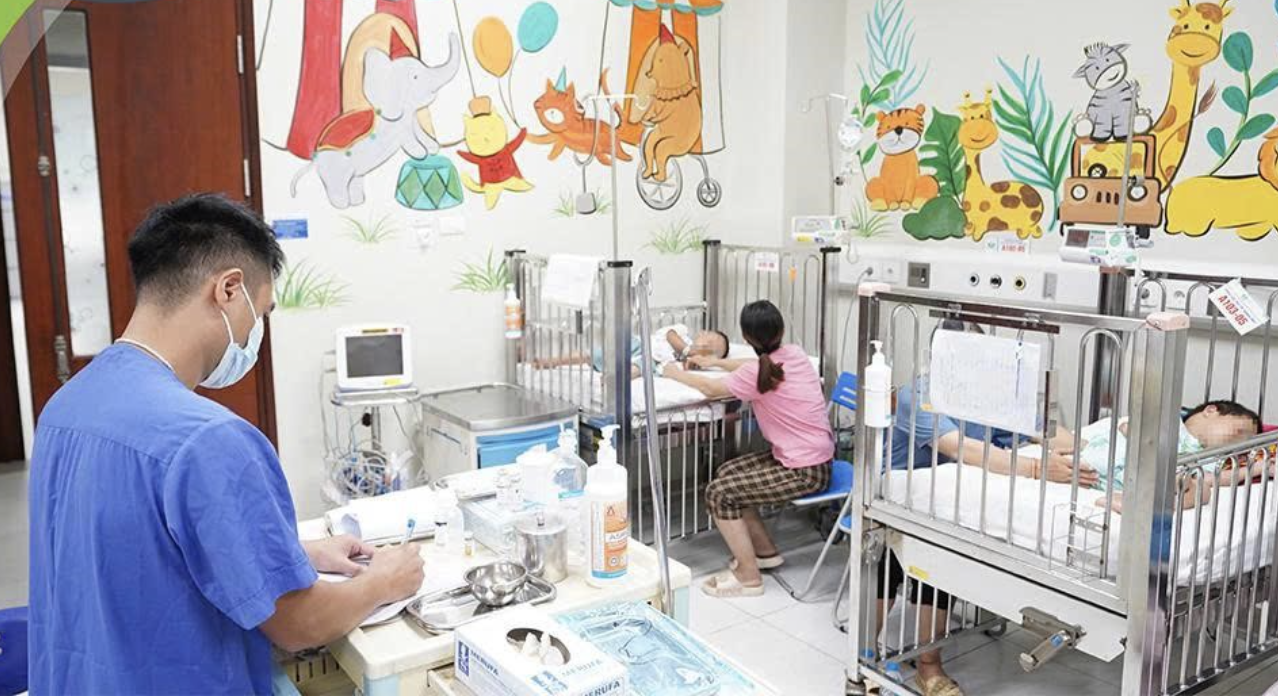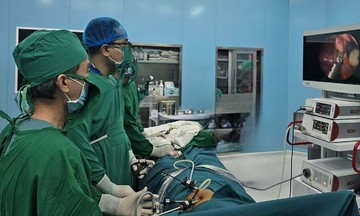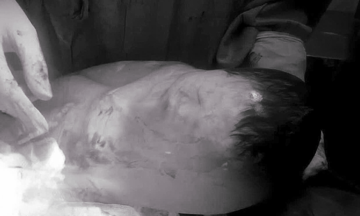The family reported on 20/9 that the incident occurred 4 days prior. The children panicked and ran but couldn't escape the bees. Upon returning home, relatives noticed the 3 children had swollen faces and multiple stings all over their bodies. They were experiencing fever and difficulty breathing and were rushed to the local health station before being transferred to the provincial hospital. Tragically, the 3-year-old, who suffered 80 stings, died. The two other children were transferred to the National Children's Hospital (Hanoi) for consultation and treatment.
 |
Two children treated for bee stings at the National Children's Hospital. Photo: Hospital provided |
At the Emergency and Poison Control Department, test results revealed both children suffered liver and kidney damage, along with blood clotting disorders and rhabdomyolysis – severe complications caused by bee venom. Doctors immediately initiated aggressive treatment, including intravenous fluids, diuretics, blood clotting disorder management, and liver protection.
"The children's vital signs have improved significantly, and their clinical condition is more stable. If they continue to progress well, they may be discharged in the next few days," said Doctor Pham Van Tuan from the Emergency and Poison Control Department.
Earlier in September, the hospital also treated two siblings, aged 4 and 6, from Son La who suffered similar complications from bee stings after throwing objects at a beehive in their garden. Both recovered and were discharged after 5 days thanks to prompt medical attention.
Doctors advise parents not to underestimate the severity of bee stings, even if there are only a few. Bee venom can cause dangerous complications like anaphylactic shock, liver failure, and kidney failure, especially in young children. Families should immediately take children to the nearest medical facility for monitoring and proper treatment.
Le Nga












